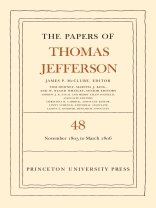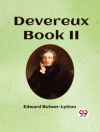A definitive scholarly edition of the correspondence and papers of Thomas Jefferson
Jefferson sends his annual message to Congress. He submits the peace treaty with Tripoli, but ratification takes months as the Senate asks for supporting documentation and Congress considers the request of Ahmad Qaramanli for compensation. The president desires action to make Spain negotiate outstanding issues and urges defensive preparations in the event of armed conflict. Congress appropriates $2 million for the purchase of Florida and approves the appointment of James Bowdoin and John Armstrong as commissioners to negotiate. New restrictive measures by Great Britain that threaten to choke off American trade with the West Indies spark memorials by merchants in seaport cities. After Congress passes an act outlawing trade with Haiti for a year, Timothy Pickering decries the administration’s “spaniel servility” to France. Representatives of the Cherokee, Potawatomi, Sac, Fox, Osage, Missouri, Kansas, Otoe, Iowa, Pawnee, and Sioux nations come to Washington. South American revolutionary Francisco de Miranda travels in the United States, secretly collecting men and materials for a projected uprising in Venezuela. Tunisian envoy Sulayman Melmelli is in Washington. Jefferson’s daughter Martha Randolph and her family make an extended visit to the capital, during which his newest grandchild, James Madison Randolph, is born in the President’s House.
A propos de l’auteur
James P. Mc Clure, senior research historian at Princeton University, is general editor of the Papers of Thomas Jefferson.












